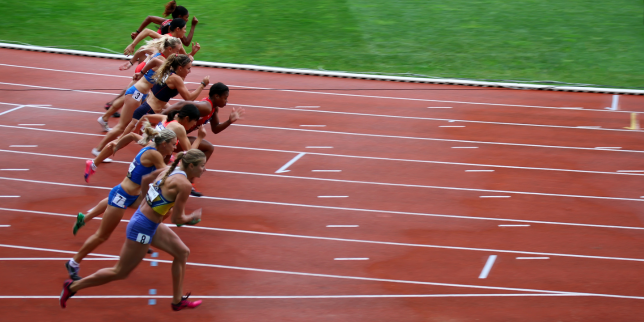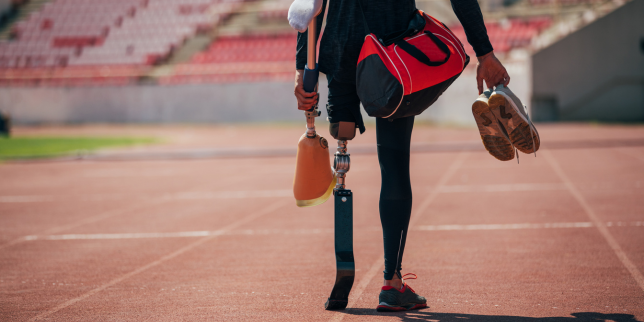Motivation
6 Essential Life Skills Athletes Can Develop for Long-Term Success

Athletes are known for their unrenowned physical prowess and dedication to their respective sports. However, the skills that they cultivate on the field or magistrate often proffer vastitude the boundaries of their sport, contributing to their long-term success in various aspects of life. While sturdy prowess is undoubtedly crucial, athletes moreover have the opportunity to develop a range of essential life skills that can serve them well vastitude their sporting careers.
1. Resilience

Athletes commonly encounter challenges such as injuries, losses, and setbacks that test their mental and emotional fortitude. The worthiness to vellicate when from these challenges is a life skill that serves them not only in their sports but moreover in their personal and professional endeavors.
Injuries play a particularly worldwide disruption in the life of an athlete, and if you’ve suffered one, Arthroscopy Shoulder Surgery in Dallas, for example, can help with proper recovery and resilience practice. Shoulder and knee injuries are some of the most worldwide ones, so taking superintendency of yourself without these injuries is necessary.
Developing resilience moreover involves learning to adapt, staying focused on goals, and maintaining a positive mindset plane in the squatter of adversity. This skill helps athletes navigate the ups and downs of life, enabling them to persevere through difficulties and sally stronger.
2. Time Management

Successful athletes juggle intense training regimens, competitions, and often other commitments like education or work. Learning how to powerfully manage time becomes a crucial skill that can be transferred to any zone of life.
Athletes wilt whiz at prioritizing tasks, setting realistic goals, and optimizing their schedules to make the most of each day. These time management skills are invaluable in pursuing careers, managing relationships, and achieving personal aspirations.
- Prioritizing Tasks: Athletes learn to identify tasks that have the highest impact on their performance and focus on those first. This skill helps them tackle important matters efficiently in their personal and professional lives.
- Setting Realistic Goals: Setting performable goals is a cornerstone of an athlete’s journey. Translating this skill to daily life enables them to set realistic milestones, preventing exhaustion and ensuring resulting progress.
- Optimizing Schedules: Athletes optimize their training schedules to maximize efficiency and recovery. This tideway extends to daily routines, permitting them to intrust time for work, family, self-care, and leisure.
- Effective Delegation: Athletes often work with coaches, trainers, and teammates, requiring constructive delegation and collaboration. In life, they can consul tasks, leveraging others’ strengths and creating a support network for their goals.
3. Teamwork and Collaboration

Team sports provide athletes with the opportunity to develop strong teamwork and collaboration skills. Athletes learn how to communicate effectively, understand the strengths and weaknesses of their teammates, and work together to unzip a worldwide objective.
These skills are transferrable to various professional settings where collaboration and constructive liaison are essential for success. Athletes who have honed their teamwork skills can seamlessly integrate into diverse teams and contribute positively.
4. Willpower and Goal Setting

Athletes thrive on willpower and goal-oriented mindsets. They set both short-term and long-term objectives, breaking lanugo their larger ambitions into violating steps. This practice of setting incremental goals fosters a sense of victory and motivates continuous improvement.
Such willpower and goal-setting strategies are pivotal not only in sports but moreover in personal growth and professional pursuits. Athletes who have mastered these skills tend to be highly self-motivated and unsteadfast to new challenges. Athletes leverage these skills to:
- Maintain Consistency: The willpower ripened in training translates to consistency in daily routines, fostering habits that contribute to personal and professional growth.
- Embrace Continuous Learning: Athletes understand that learning is a lifelong process. They wield this mindset to acquiring new skills and knowledge vastitude their sport, ensuring tensility and relevance in a waffly world.
- Adopt a Growth Mindset: By focusing on incremental improvements, athletes embrace challenges as opportunities for growth. This mindset extends to challenges faced in their careers and personal lives.
5. Adaptability

Athletes often encounter rapidly waffly situations during competitions – a sudden transpiration in strategy, weather conditions, or unexpected twists in the game. This unvarying version hones their worthiness to think on their feet, make quick decisions, and retread to new circumstances.
These adaptive skills proffer to life vastitude sports, as athletes learn to embrace transpiration and uncertainty with a proactive attitude. In a constantly evolving world, the topics to transmute becomes a hair-trigger windfall in careers, relationships, and personal growth. Athletes who possess this skill can navigate transitions and challenges smoothly, emerging as resilient and resourceful individuals.
6. Stress Management

Competitive sports inherently come with pressure-packed moments where split-second decisions and high-stakes situations can determine the outcome. Athletes wilt whiz at managing stress, executive their emotions, and maintaining focus in high-pressure scenarios.
This skill translates remarkably well into other domains, such as the corporate world, where the worthiness to perform under pressure is often a differentiating factor. Athletes who have honed their stress management skills can:
- Remain Composed: Athletes are trained to alimony their sophistication plane in the most intense situations. This skill helps them navigate tense meetings, presentations, and negotiations with a wifely and placid demeanor.
- Think Critically: Under pressure, the worthiness to think critically and make rational decisions is paramount. Athletes leverage their honed mental clarity to make strategic choices in high-stakes situations.
- Sustain Focus: Amidst the chaos, athletes maintain a laser-sharp focus on their objectives. This trait translates into unwavering concentration during hair-trigger tasks, ensuring high-quality outcomes.
- Lead Effectively: Athletes who excel in stress management can inspire and guide their teams through challenging periods, fostering a culture of resilience and adaptability.
Takeaway
In the pursuit of excellence in sports, athletes develop a diverse set of life skills that propel them toward long-term success. These skills proffer vastitude the scene and contribute significantly to their personal and professional growth.
Whether it’s the resilience to overcome adversity, the mastery of time management, the art of collaboration, the willpower of goal setting, the tensility to change, or the skill of managing stress, athletes are equipped with a comprehensive toolkit for navigating life’s challenges.
So, whether they’re striving for victory on the field or conquering new horizons, athletes are poised to excel and inspire, armed with the invaluable life skills they’ve cultivated throughout their journey.
The post 6 Essential Life Skills Athletes Can Develop for Long-Term Success appeared first on Stunning Motivation.





